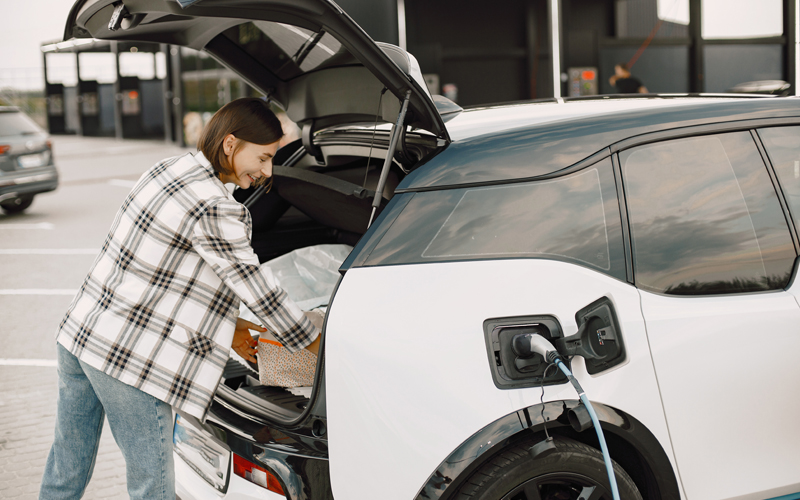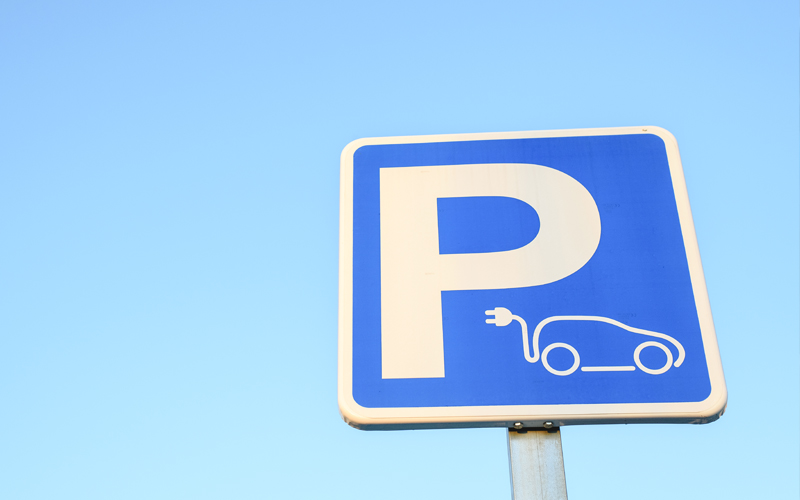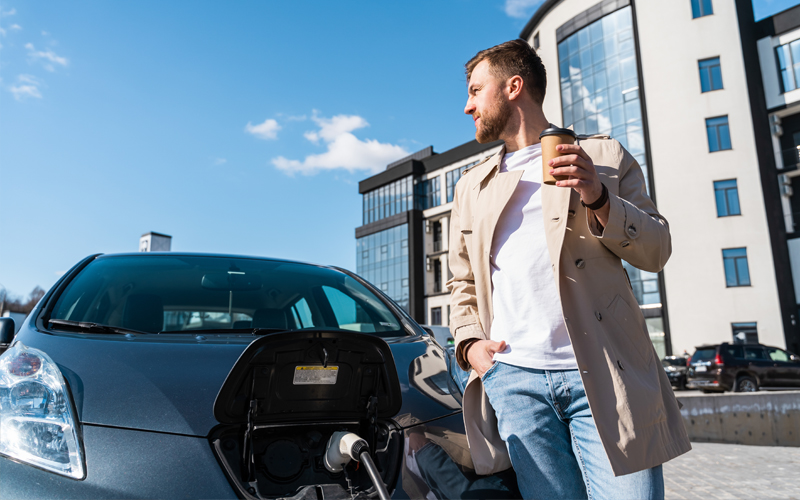The Reality Behind Common Electric Vehicle Myths

The UK Government has a number of important targets in place to help tackle climate change – with this comes a ban on the sale of new petrol and diesel vehicles by 2030.
If you don’t feel quite ready to make the switch to an electric vehicle, there’s a chance you have heard some common misconceptions. In this article, we will take a look at the reality behind these widely held electric vehicle myths.
Read on to learn more, or check out our Electric Vehicle Hub.
Myth 1: An EV won’t have the range to meet my needs
You can now expect a range of between 100 - 300 miles in a fully charged, mid-range electric vehicle (with some premium models offering even more), thanks to huge advances in battery technology. Considering the average UK car journey is just 8.4 miles, most drivers should have no issues getting around in an EV - whether it is needed for short trips or longer journeys.
Myth 2: I don’t have a driveway so can’t conveniently charge an EV
In the UK, around 6.6 million households do not have access to private or off-street parking, and this shouldn’t be an obstacle to going electric.
There are still a number of ways that you can charge your car, even if you don’t have your own wallbox:
- Public chargepoints: with over 42,000 public chargepoint connectors across the UK, you can conveniently plug into these when you’re out and about.
- Workplace charging: the Government’s Workplace Charging Scheme provides businesses, charities and public sector organisations with support towards the cost of buying and installing electric chargepoints. If your workplace has a charger, you can use this whilst you work.
- On-street charging: your local authority may be in the process of arranging on-street chargepoints through the Government’s On-Street Residential Chargepoint Scheme (ORCS) – if they haven’t done so already. This may include chargepoints being fitted to lamp posts, points that retract into the pavement, or free-standing units if there’s capacity.

Myth 3: There are not enough public charging facilities
With over 42,000 (and counting) public chargepoint connectors, in over 15,500 locations across the UK, you should be pretty well covered when you’re on the road.
All regions of the UK have seen an increase in chargepoint availability over the last few years with continued Government investment.
Most new electric vehicles will come fitted with navigation systems that can direct you to your nearest public chargepoint, or smartphone apps like Zap Map can help too. Alternatively, you can search for your local charging stations through the interactive map on our Electric Vehicle Hub.
Myth 4: An EV will take too long to charge
Many electric vehicle owners can charge their vehicles at home when they aren’t needed e.g., overnight. Similarly, if your workplace has EV chargepoints installed, you will be able to charge up your car whilst you’re working – in which case you probably won’t notice the time it takes.
Whilst it’s no secret that charging an electric vehicle does take longer than filling up with fuel at the pumps, the onset of rapid charging has significantly speeded up this process. Using a rapid charger (50kW to up to 350kW) can help top many EV batteries up from around 10 - 80% in as little as 30 minutes. This is enough time for you to take a short break from driving, which is a good idea when travelling longer distances.

Myth 5: Electric vehicles are too expensive
Electric vehicles are typically more expensive to buy than those with an internal combustion engine, however, you are likely to make savings over the course of the vehicle’s lifetime. These savings include:
- No road tax: EVs are exempt from road tax, so you won’t have to pay for this. Please note - you will still need to tax your vehicle, even though there is no cost.
- Fewer maintenance costs: an electric motor doesn’t have as many moving parts as an internal combustion engine, which means EVs should have reduced maintenance costs in comparison.
- Unrestricted urban access: electric vehicles are exempt from charges in Clean Air Zones or Low Emission Zones - these areas are becoming more common in UK cities.
Myth 6: If it’s raining, it’s not safe to drive or charge an EV
Electric vehicles are manufactured in accordance with strict safety standards. Thorough testing is carried out on the vehicles to ensure that they are watertight, and batteries and electric motors must be well insulated, so this is not an issue.
Myth 7: EVs feel like golf buggies
EVs are a lot of fun to drive! The instant torque that is provided by the electric motor gives them a powerful acceleration. With no gears to change, they are smooth to drive, and the lack of engine noise means they are much quieter too – this creates a refined driving experience.

Myth 8: There is too much confusing technology associated with EVs
Many people believe that there are simply too many charging apps to deal with. To get around this issue, lots of public charging stations now allow you to access them as a guest, with a contactless payment option. Alternatively, various stations will allow you to pay via a charging card.
Some chargepoints do require individuals to have a specific app to use the facility, however, the Government is currently working on a mandate to ensure customers can pay without the need to download a separate app each time – which should help consumers.
Myth 9: Electric vehicles create lots of greenhouse gases
EVs have a lower carbon footprint than petrol and diesel vehicles. Recent research that looked into the whole lifespan (including production, use, fuel and electricity consumption, and end of life) determined that a new battery-electric car produces one-third of the lifetime greenhouse gas emissions of a new petrol car.
As UK electricity generation continues to be decarbonised, charging stations will increasingly be powered by renewable sources, making the lifespan of electric vehicles even cleaner.
Myth 10: EV batteries don’t last and will be sent to landfill
Most EV batteries come with an 8-year or 100,000-mile warranty from the manufacturer – and experts believe they will last much longer than this in reality.
Once an EV battery is finished, it will most likely be recycled rather than going to landfill. Technological advancements in processing centres mean that up to 90% of battery materials are able to be extracted for recycling or reuse.
So, now you know the truth behind these common EV myths, it could be time to embrace the switch to electric!
Keep an eye on our Newsroom for all your EV updates, or follow the links below for more.